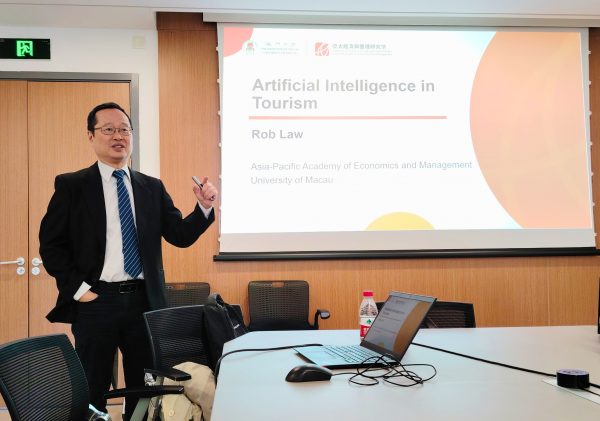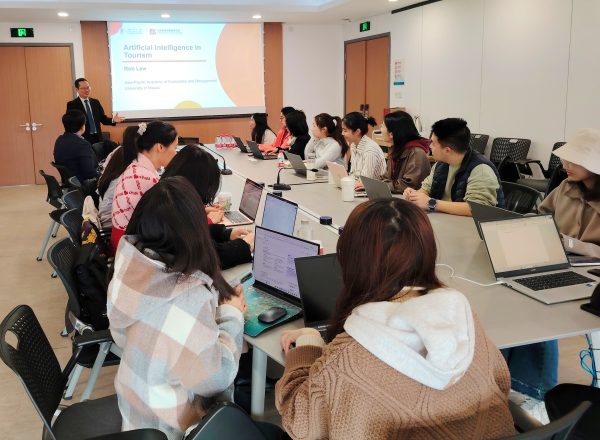
Group photo

Prof. Rob Law delivered a speech on the current state, future trends, and potential challenges of AI applications in tourism practice and research

Prof. Law engaged in in-depth discussions with faculty and students from the Department of Tourism and Hotel Management at ZJU’s SOM
On April 3, 2025, Prof. Rob Law, APAEM Deputy Director at the University of Macau (UM), was invited to deliver a lecture titled “Artificial Intelligence in Tourism” at the School of Management (SOM), Zhejiang University (ZJU). During the event, Prof. Law engaged in in-depth discussions with faculty and students from the Department of Tourism and Hotel Management at ZJU’s SOM on the current state, future trends, and potential challenges of AI applications in tourism practice and research. The academic atmosphere was lively. The lecture was hosted by Prof. Tianyu Ying, Director of the Department of Tourism and Hotel Management at ZJU’s SOM.
In the lecture, Prof. Law provided an in-depth analysis of two major AI applications in tourism. Firstly, AI serves as an autonomous service provider, enhancing operational efficiency and delivering personalized customer experiences. Second, AI functions as a powerful methodological tool, enabling advanced data processing and analytics. Additionally, Prof. Law introduced an innovative classification framework for human-AI interaction in tourism studies, categorizing it into four distinct modes: AI-supplemented, AI-generated, AI-mediated, and AI-facilitated. This theoretical model offers fresh insights into the deep integration of intelligent technologies and service industries. While highlighting the vast opportunities AI presents for tourism, Prof. Law also reminded everyone to pay attention to the potential risks in technology applications with a scholar’s cautious attitude.
During the Q&A session, faculty and students at ZJU had a lively discussion with Prof. Law on topics such as the academic application boundaries of AI tools and scholarly publication. This event not only deepened participants’ understanding of AI’s transformative role in tourism but also inspired new interdisciplinary research directions, laying a solid foundation for future academic exploration and practical innovation.

